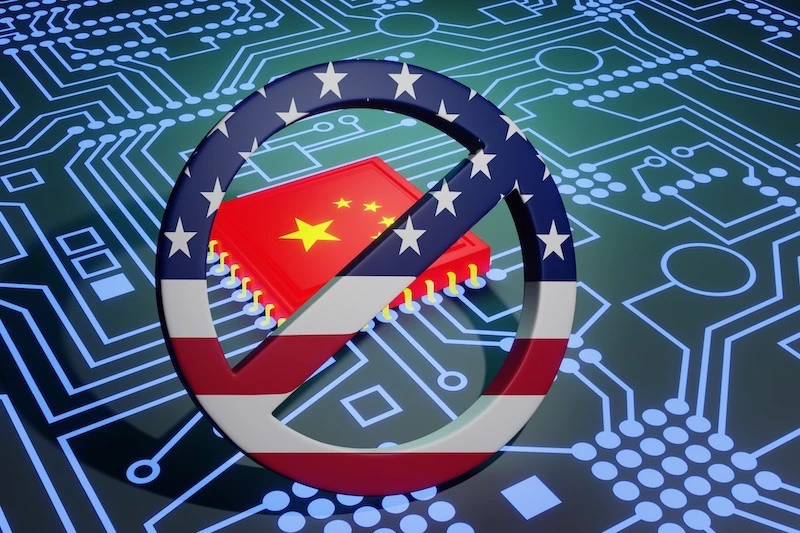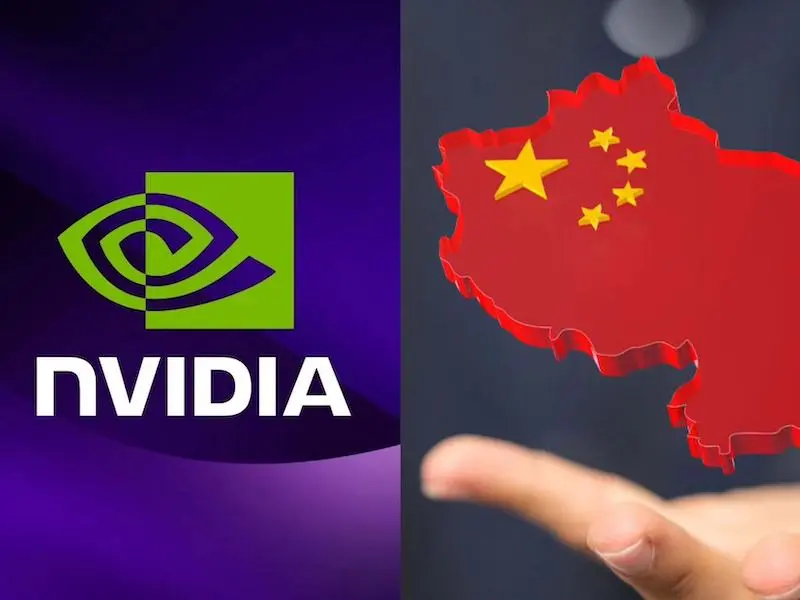- Nvidia plans to mass-produce its H20 AI chip for China in Q2 2024, complying with U.S. export rules.
- Chinese cloud companies, including Alibaba and Tencent, reduce Nvidia GPU purchases due to imposed restrictions.
- Anticipation of Beijing’s response to the U.S. tech ban fuels predictions of accelerated Chinese chip development.
In an effort to comply with U.S. export rules, Nvidia, the U.S. chipmaker, is gearing up to begin mass production of its H20 artificial intelligence (AI) chip for the Chinese market in the second quarter of 2024. The move follows the introduction of restrictions in October, with the H20 chip being the most potent among the three designed specifically for China.
Strategic moves and market response
Initially set for a November 2023 launch, the plan faced delays attributed to integration issues reported by server manufacturers. However, reports indicate that Chinese companies are showing reluctance to embrace the downgraded H20, testing domestic alternatives amid fears of potential tightening of U.S. restrictions.
In addition to the H20, Nvidia has plans for two other chips, the L20 and L2, also designed to comply with the new restrictions. As of now, the chipmaker has not announced any sales for these three chips. To adapt to the evolving regulatory landscape, Nvidia introduced a modified version of an advanced gaming chip in late December, underscoring the strategic importance of these chips to maintain market share in China.
Also read: Nvidia designs a gaming chip for China, bypassing US controls

Wider industry implications
Beyond Nvidia, the broader tech industry grapples with the ramifications of the U.S.-China technological standoff. Major Chinese cloud computing companies, including Alibaba Group, Tencent, Baidu, and ByteDance, express reluctance in purchasing Nvidia’s upcoming GeForce RTX 4090 D chip. Sources reveal plans for significant reductions in GPU purchases from Nvidia, citing the impact of imposed restrictions on the GPU products they were interested in.
Insiders suggest that these Chinese tech giants are actively exploring alternatives offered by domestic tech behemoths such as Huawei. The performance gap between Nvidia’s downgraded chips and the alternatives provided by Chinese companies is reportedly narrowing, intensifying the dilemma faced by these major players in the tech industry.
Also read: Intel, Nvidia, AMD: Who is going to win the AI chip race?
Uncertain industry prospects
The U.S.-China tech standoff poses a considerable challenge for large chip companies, with a substantial portion of their profits derived from sales to China. For Nvidia, it is estimated that up to 25% of its data center revenue depends on the Chinese market. The broader implications of these export restrictions are a cause for concern among U.S. chip companies, as China has been a pivotal market for Nvidia, holding over 90% of the market share in the $7 billion AI chip market.
Anticipating Beijing’s response to the ban on purchasing advanced U.S. technology, many predict an acceleration in China’s efforts to enhance the performance of its own chips, potentially nullifying the intended effects of Washington’s restrictions. This heightened competition in the semiconductor industry adds to the anxieties of U.S. chip companies, who have already witnessed key figures like the CEOs of Intel and Qualcomm visiting Washington to gauge the impact of export controls on their businesses.
The export regulations imposed by the U.S. government on October 17, 2023, stipulate that any company exporting AI chips to restricted countries, including China, must seek approval from the U.S. Department of Commerce if the chips exceed specified performance thresholds. The evolving landscape of U.S.-China trade relations continues to present challenges for tech companies, requiring strategic adaptations to navigate the intricate web of regulations and market dynamics.

